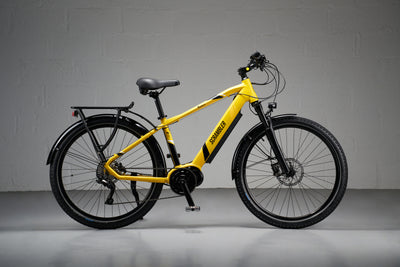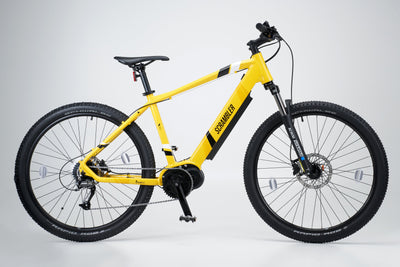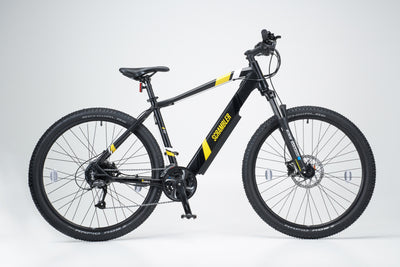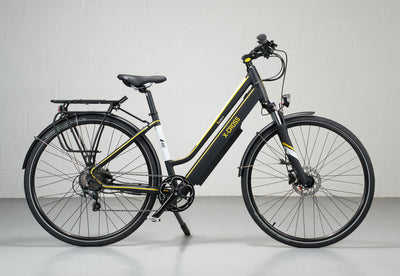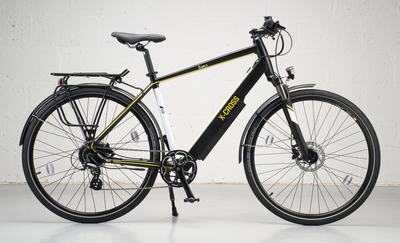
The benefits of commuting with an eBike
Commuting with an eBike: eBikes vs. fuel
It’s June 2022 and the price of almost everything - gas & electric, groceries and fuel - seems to be rapidly rising; fuel is at a record high, with diesel touching £2 per litre. So, with the cost of living rising and fuel prices at an all time high, what are the benefits of commuting with an eBike?
The benefits of commuting with an eBike (eBikes vs. fuel)
There are multiple benefits of commuting with an eBike, including:
- The opportunity to incorporate purposeful and meaningful exercise into your daily routine
- The positive impact felt on your mental health & wellbeing from daily exercise
- An increase in energy levels and stamina
As well as - what is the focus of this article - financial benefits.
eBikes vs. fuel
There’s no denying that the cost of running a household here in the UK is steadily rising and we’re all trying to find ways to reduce our regular outgoings wherever possible.
As such, could swapping your car for your eBike on your daily commute make a significant and positive difference to your monthly spending? Let’s investigate…!
70% of all car journeys are less than 5 miles.
A 5 mile journey can be completed within approximately 20 minutes on an eBike. Consequently, for short distance commuting, active travel really is a realistic option for many of us for a variety of reasons - social, health and financial.
But what does it cost to run an eBike compared to a car?
Electric prices are rising continuously and, previously, none of us would have ever really paid close attention to what we paid per kilowatt hour (kWh). However, within 6 months, the price has risen by 50% to about 30p. And another 50% rise expected by October!
So, where a standard eBike battery in this case has a rating of 10.4 amp hours (Ah) or 375 watt hours (Wh), and we assume we travel 5 miles per day, each way, that’s 10 miles per days and 70 miles per week or 3500 miles per year. And if we get 35 miles per battery charge, we will fully charge our battery 100 times per year.
With electricity at 30p per kWh, each full charge will cost about 12p. As such, 3500 miles in a year will cost a grand total of £12 per year in electricity.
That’s £1 per month.
0.35p (£0.0035) per mile!
Compare the cost of running your diesel for these small journeys.
If your diesel is efficient and delivers an average of 40 miles per gallon, at £2 per litre, every mile will cost you 22.5p in fuel.
So 3500 miles per year will cost £787.70 in fuel; plus insurance, road tax, maintenance, parking, etc… probably closer to £1500-2000 per year all tolled. And less pollution.
Crunch the numbers and it’s clear to see that an eBike makes a lot of sense for short day to day journeys. With, of course, the added benefit of regular, gentle and purposeful exercise and fresh air.
An Ebike could actually pay for itself in a year.
For fair comparison though, approximately £100 a year should also be budgeted for maintenance. However, no tax, registration, insurance or licence is required for an eBike.
Plus, it is a lot of fun!
A note on battery life: A Mark2 battery is guaranteed for 3 years with the option to extend to 5 years. The expected life of a battery is 800 cycles. That’s 800 x complete charge and discharge cycles, whether to keep topping up or not. The above example uses 100 charging cycles per year, so on that usage you would expect the battery to last at least 8 years with proper care and use.
To browse our range of eBikes, please visit our online shop.



